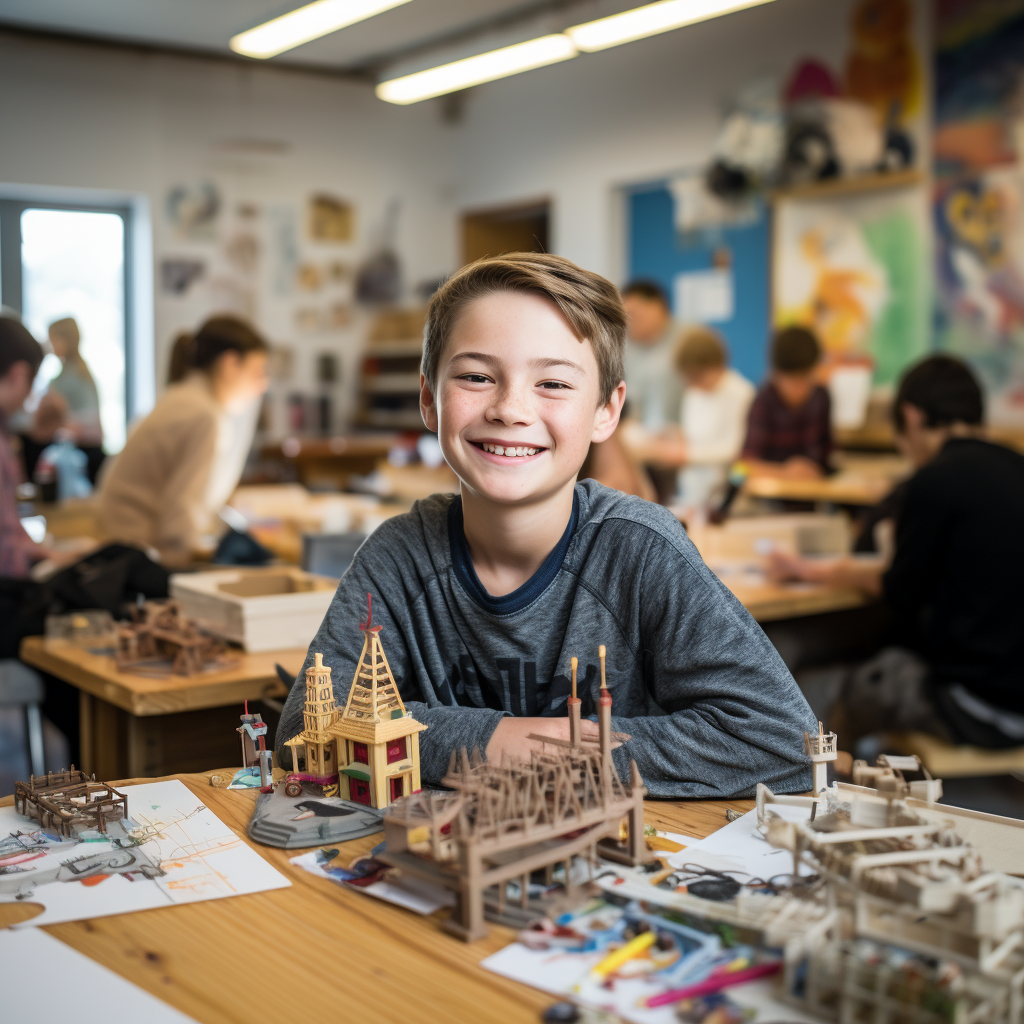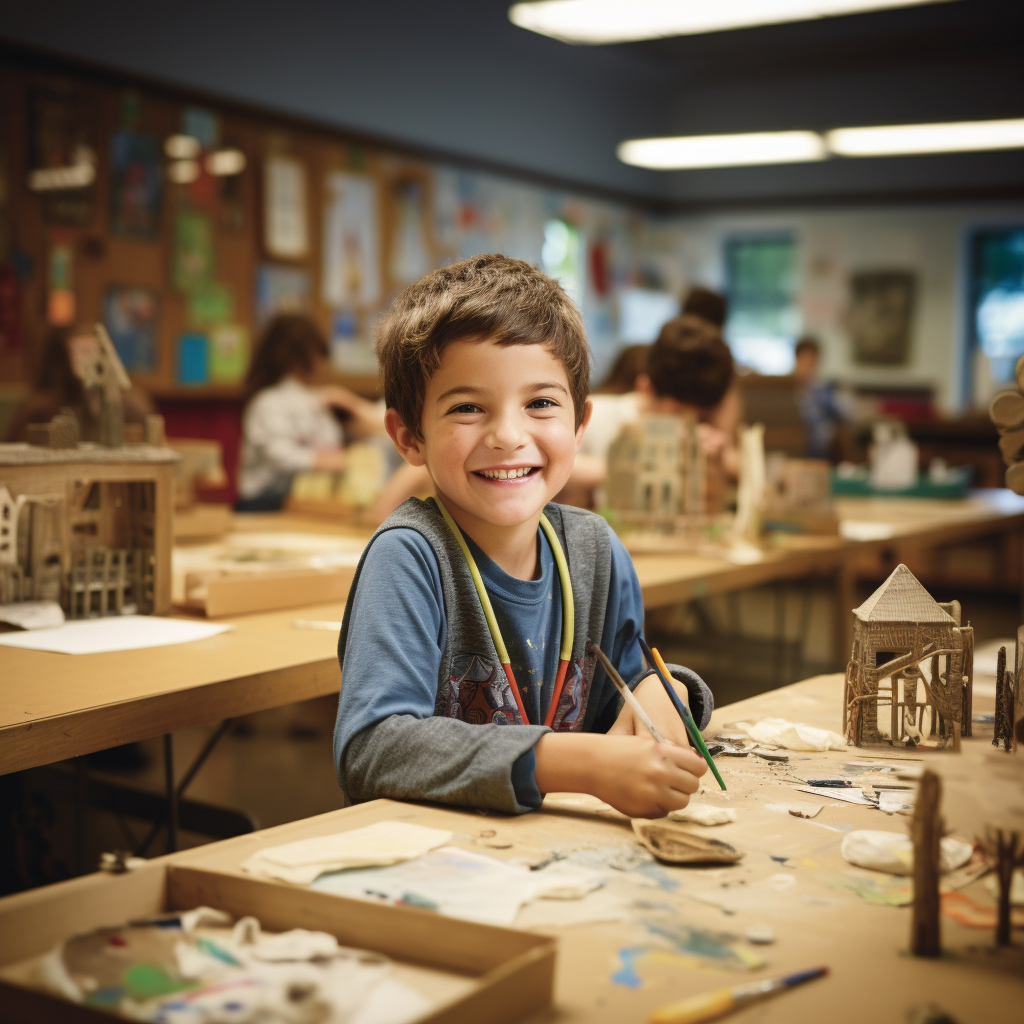High IQ But Not Gifted? Unraveling the Myths
The concept of a 'gifted child' often conjures up images of youngsters solving complex mathematical equations or reading at an advanced level. While these abilities may indeed be present in gifted children, the distinction between having a high IQ and being truly gifted is nuanced and significant. Giftedness is not solely about raw intellectual ability. It encompasses a set of attributes that include creativity, deep curiosity, and the capacity for intense concentration and passion for learning. Gifted children often have a heightened sensitivity to their surroundings and may demonstrate advanced moral reasoning and empathy at an early age.
While a high IQ score can indicate potential for academic achievement, it does not encompass the whole spectrum of what it means to be gifted. A child with a high IQ might excel in logical reasoning and standardized tests but might not show the same level of innovative thinking or emotional depth that a gifted child would. Giftedness implies a greater need for intellectual stimulation and emotional support to truly thrive. Consequently, educational environments like Vanguard Gifted Academy provide a tailored approach to learning, ensuring that each child's unique abilities are nurtured.
Parents and educators who recognize these differences can better support children in reaching their full potential. For those looking to understand more about the needs of gifted children and how to support their development, Vanguard Gifted Academy offers resources and expertise. For more information or to schedule a tour, email us at gifted@vanguardgiftedacademy.org.
The Multifaceted Nature of Giftedness
Giftedness extends beyond a singular dimension of high intellectual capability. It is a multifaceted concept that integrates a blend of high abilities across various domains. Gifted individuals often demonstrate exceptional skills in areas such as leadership, arts, creativity, and specific academic fields. They possess an intrinsic motivation and an intense dedication to their interests, which can sometimes lead them to pursue their passions to the exclusion of other activities. This intense focus can often be misunderstood as obsessiveness, but it is a hallmark of the depth with which gifted children engage with the world.
Moreover, gifted children frequently exhibit asynchronous development, which means their cognitive abilities may be significantly more advanced than their emotional or physical development. This asynchrony can pose unique challenges in traditional educational settings, where teaching methods and peer interactions are typically designed for more uniform developmental stages. The complex social and emotional needs of gifted children often require a specialized approach to education, one that fosters both their intellectual growth and emotional well-being.
Understanding the complexity of giftedness is crucial for parents and educators. It allows for the creation of nurturing environments where gifted children can explore their full range of abilities without being limited to what is typically expected at their age. Recognizing and supporting the multifaceted nature of giftedness is essential for the holistic development of these unique learners.
High IQ Scores: Not the Sole Indicator of Giftedness

While high IQ scores are often associated with giftedness, they do not paint the complete picture. A high IQ indicates strong analytical abilities and cognitive skills, but giftedness encompasses a broader spectrum of talents and characteristics. Gifted individuals may show extraordinary capacity for creativity, problem-solving, and understanding complex concepts, which are not always captured by traditional IQ tests.
Gifted children often exhibit qualities such as intense curiosity, a deep passion for learning, and the ability to think critically and make connections between disparate ideas. These traits may not directly correlate with the linear and quantitative measures used in IQ assessments. Furthermore, relying solely on IQ scores to identify giftedness can overlook children who display exceptional talent in areas such as the arts, leadership, or kinesthetic abilities – realms less quantifiable by standard intelligence tests.
It is important to adopt a holistic approach to recognizing giftedness, one that considers a variety of assessment tools and observations. By doing so, educators and parents can ensure that children with diverse forms of high abilities receive the support and educational opportunities they need to thrive. This approach also prevents the exclusion of children who may not perform well on an IQ test but who demonstrate giftedness through their inventiveness, advanced language skills, or other intellectual and creative strengths.
The Role of Creativity and Emotional Intelligence in Giftedness

Creativity and emotional intelligence are critical components of giftedness that extend far beyond the scope of traditional IQ scores. Creativity in gifted children is not just about artistic talent; it's about the ability to think divergently, to make novel connections, and to approach problems with originality. These children may think in unconventional ways, leading to innovative solutions that a standard IQ test cannot predict or measure.
Emotional intelligence (EQ), on the other hand, involves the capacity to be aware of, control, and express one's emotions, as well as handle interpersonal relationships judiciously and empathetically. Gifted children often have heightened emotional sensitivities, which can lead to a deeper understanding of complex social dynamics and a strong sense of empathy. However, these same sensitivities may also pose challenges, such as feeling overwhelmed by intense emotions or struggling to fit in with peers.
The role of creativity and emotional intelligence in giftedness is therefore dual-edged, offering both advantages and potential hurdles. Educators at institutions like Vanguard Gifted Academy are adept at nurturing these aspects, providing an environment where STREAM (STEM plus Research, Arts, and Mathematics) education is integrated with social-emotional learning. This ensures that gifted children are not only challenged academically but also supported in their emotional and creative development, allowing them to become well-rounded individuals with the ability to excel in various domains of life.
Challenges Faced by High IQ Students Who Are Not Gifted

Students with a high IQ who are not identified as gifted may encounter unique challenges within the educational system. While their intelligence enables them to understand complex concepts and absorb information quickly, they might not display the same level of creativity, curiosity, or drive that typically characterizes gifted children. This discrepancy can lead to a lack of engagement and motivation, as these students may not find standard classroom content stimulating enough to capture their interest.
Another challenge is the potential for social isolation. High IQ students may struggle to connect with peers who do not share their intellectual capabilities, leaving them feeling misunderstood or out of place. This social disconnect can impact their emotional well-being and decrease their overall satisfaction with the school experience.
Additionally, high IQ students might face the pressure of high expectations from teachers and parents, who may assume that a high IQ is synonymous with high performance across all academic areas. This can result in undue stress and anxiety if the students are unable to meet these expectations, especially if they lack the intrinsic motivation or passion that often drives gifted learners.
Understanding these challenges is crucial for educators and parents. It requires a nuanced approach to education that considers the individual needs of each student, whether they are identified as gifted or not. Tailored support systems and teaching methods can help high IQ students who are not gifted to thrive academically and socially, ensuring that their unique talents and capabilities are recognized and nurtured.
Supporting All Learners: Strategies for Parents and Educators

For more information or to schedule a tour, parents and educators can reach out to learn about the best practices for supporting high IQ and gifted students alike. To effectively cater to the needs of all learners, a multi-faceted approach is essential. This strategy includes differentiated instruction that adapts to the varying levels of readiness and interest among students. Offering advanced materials and complex problems can stimulate high IQ students, while projects that promote creativity and problem-solving can engage those who are gifted.
It is also important to foster a supportive environment that values diverse abilities and learning styles. Educational strategies such as grouping students by skill level for certain activities, or implementing individualized learning plans, can accommodate the unique needs of each child. Encouraging collaboration and peer-learning can also help high IQ students develop social skills and form meaningful connections with classmates.
Mental and emotional support is equally crucial. Schools and families should provide access to counseling services and promote social-emotional learning to help students navigate the challenges associated with high intellectual abilities. Recognizing the signs of anxiety or frustration and addressing them proactively can prevent these feelings from hindering a child's academic and personal growth.
Ultimately, the goal is to create an inclusive educational landscape where every student has the opportunity to excel. Whether a child is high IQ but not gifted, or possesses the unique qualities of giftedness, each deserves a tailored approach to education that promotes their strengths and supports their weaknesses.
To discover more about how Vanguard Gifted Academy supports these educational strategies, or to explore our programs in person, email us to arrange a visit.
